Two Years of War in Ukraine
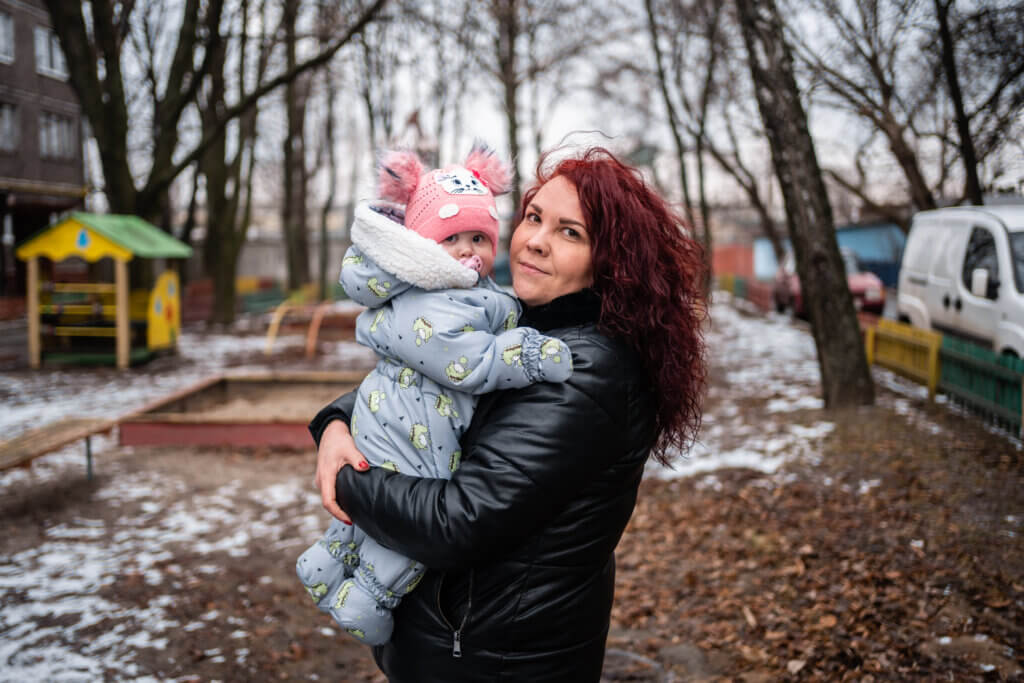
The ongoing war in Ukraine continues to impact the lives of millions of women and girls. As the conflict enters its third year, more than 14.6 million people — roughly 40% of the total population of Ukraine — will need humanitarian assistance in 2024. The war has caused significant displacement, with 10 million people forced to leave their homes.
Women and girls continue to be vulnerable to health complications and violence. Two years of war have disrupted access to essential health services, like prenatal check-ups, safe delivery care, family planning consultations, mental health counseling for survivors of violence, and more.
UNFPA is ensuring critical reproductive health and protection services are accessible to women and girls across Ukraine and in neighboring countries. By collaborating with partners and allocating resources to reach even the most remote communities, UNFPA is striving to lessen the war’s impact on women and girls. In fact, in 2023, we expanded our support by 28 mobile clinics and 107 health centers, so every woman and girl has the care she needs, when she needs it.
This work was made possible through the contributions of supporters like you. Thank you. You can continue to deliver lifesaving care women and girls in Ukraine with a gift today.
Keep reading to hear from women and girls you’ve reached with care:
A UNFPA Psychologist Becomes a Rescue Worker
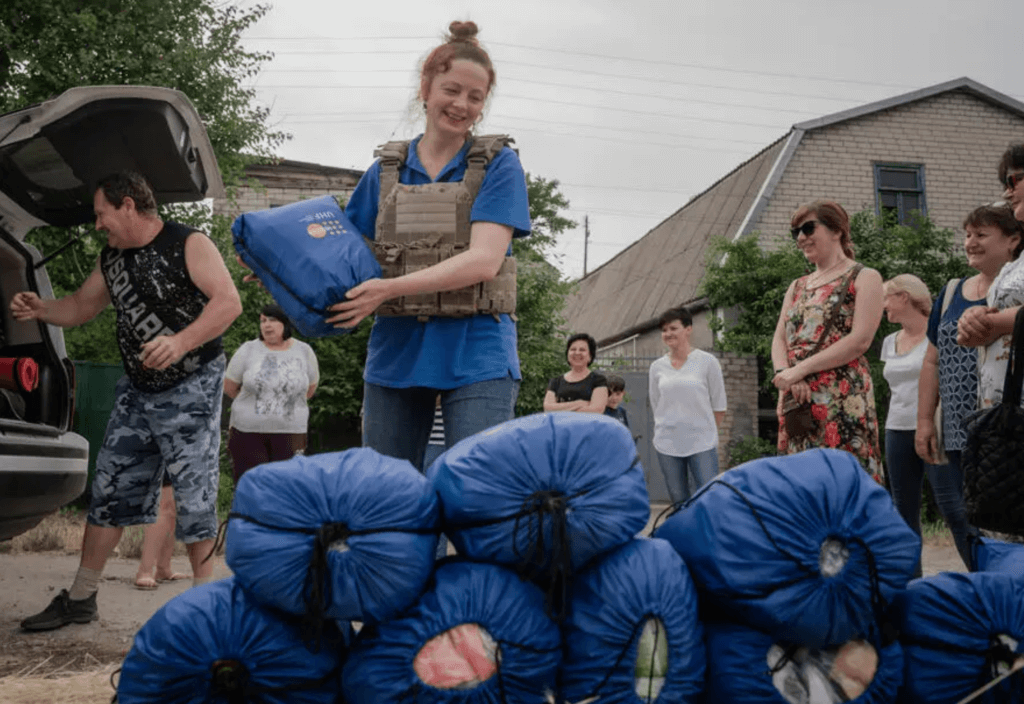
In the early hours of June 6, the sound of explosions echoed through the air, signaling the collapse of the Nova Kakhovka dam. The dam’s rupture unleashed torrential flooding that displaced thousands of residents and submerged entire towns underwater.
Iryna, a UNFPA social worker, woke up to the alarming news from a phone call from a friend. She promptly joined forces with her colleagues to relocate residents to higher ground, aiding family and friends however she could. “We had to react quickly,” she said.
The destruction of the dam is the largest environmental disaster in Ukraine since the Chernobyl nuclear accident in 1986. The center Iryna works for usually provides services to people affected by sexual violence. But, when the dam was destroyed, the center decided to refocus its efforts on the overwhelming rescue and humanitarian needs of the city.
With the support of UNFPA, Iryna not only provides mental health support to evacuees, but she also facilitates the coordination of volunteers, fundraising efforts, and donations of critical resources.
Iryna and her team work long hours amid constant threat of attacks to deliver blankets, dry clothes, and hygiene products to their community. “It is very difficult and painful for them, but receiving help provides people with a sense of strength,” Iryna explained about her outreach efforts.
Cash Assistance Is a Lifeline for Refugees in the Republic of Moldova
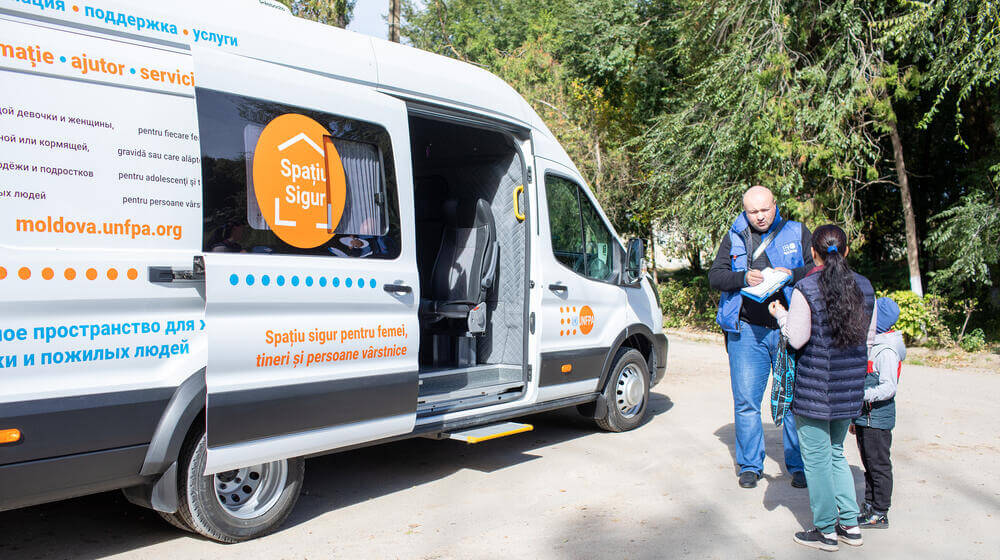
With her three children in tow, Elena left her hometown in Ukraine at the beginning of the war. Like many others fleeing conflict, she faced exploitation and violence.
“The scariest was when the children asked for food and I had nothing to offer them,” Elena recalled. “The only person I considered close to me in Moldova was my neighbor. I went to him with a request to lend me some money or food so I could feed my children. Then I got the biggest shock I’d had since the war, when he proposed to have sex – that’s the only way he would give me money.”
Fortunately, Elena found assistance through a UNFPA mobile safe space — one of eight established in Moldova to aid women escaping violence and conflict. With this support, Elena could afford food, supplies, and to relocate to a secure home with her children.
Since the war in Ukraine began in February 2022, more than 30,000 individuals have accessed care at 28 UNFPA safe spaces.
As Bombs Fall, Women Give Birth in UNFPA-Supported Hospitals
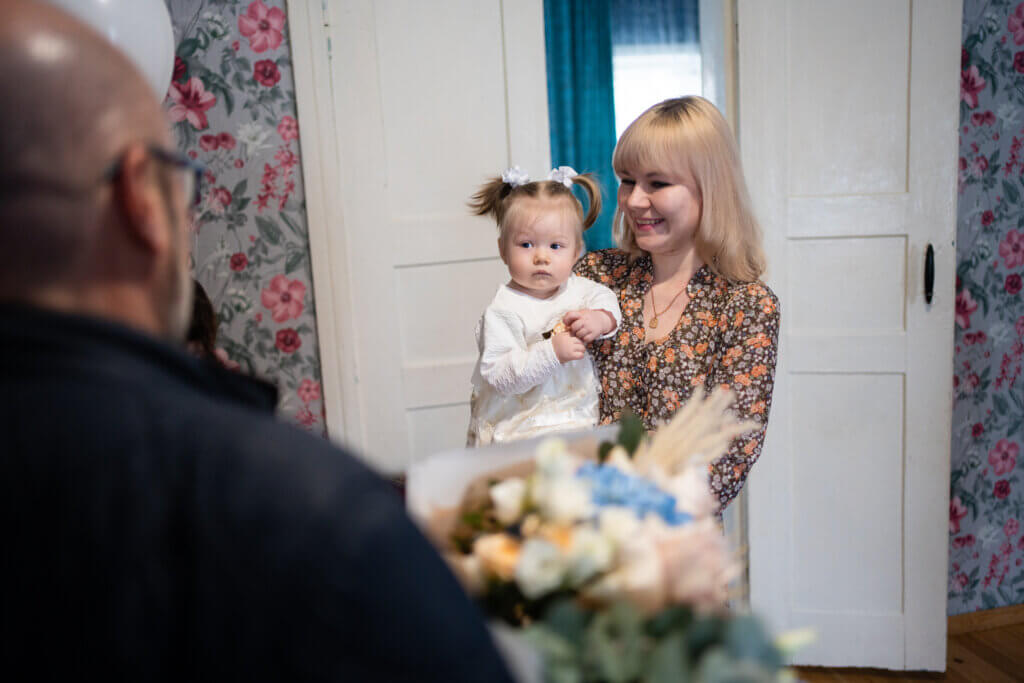
In the past two years of war, 1 in 3 babies in Ukraine have been delivered with support from UNFPA.
Despite the dangers – there have been more than 850 verified attacks on health care facilities – obstetrician Olena has helped women deliver as many as 70 babies a month at a UNFPA maternity hospital. She visited several women to celebrate their children’s first birthdays, including Kateryna and her daughter Sophia.
Kateryna’s birth story is one of an all-too-common struggle. Her contractions started while she was sheltering from airstrikes in a cellar. With her city under attack, she managed to find a route to the hospital, arriving at 5 p.m. She gave birth to her daughter Sofia in the hospital’s dark, busy corridor, just before midnight on March 7.
Reflecting on giving birth under siege, Kateryna shares, “We hid in the basement and stayed there for three days. It was cold; there was no light, no water,” she says. “I had to find food for the baby somewhere because I had no milk.”
After giving birth, she was separated from her husband and son — who stayed behind in their occupied village — for a whole month. “I cried every day. When our village was liberated, my son, Mykhailo, was brought to us,” Kateryna shares. “My children and loved ones are the only joy that gave me strength to survive this year.”
Girls Receive Free Menstrual Products and Health Education
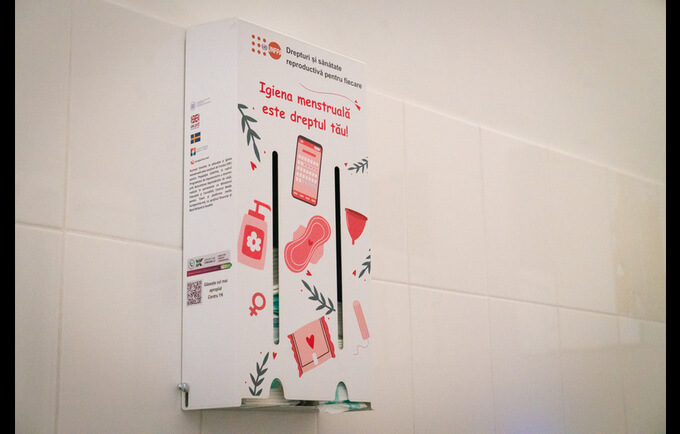
In Moldova, four schools are piloting a program to provide more than 700 girls free menstural products. Many of these girls are Ukrainian refugees for whom the cost of menstrual products can be steep.
Each school is equipped with dispensers that offer complimentary aborbent pads. In addition to this initiative, the schools set up doctors’ offices, appointed a school psychologist, and introduced life skills classes. These resources, along with educational activities, aim to create a safe and supportive environment conducive to students’ physical and mental well-being.
Before this program, a school nurse noted that girls frequently left school early to get menstrual products when they were unavailable. With this new initiative, girls can now concentrate on their education and returning their lives to normalcy without period-related distractions.
Natalia Plugaru, a UNFPA Deputy Representative, expressed gratitude to the high school administrations for their openness and involvement in the program.
“A school environment that offers favorable conditions for studying health education, access to the services of a doctor and a psychologist, as well as dispensing menstrual hygiene products for free, are essential school interventions to ensure health, equal learning opportunities, and the reduction of school absenteeism,” she said.
As we round the corner on two years of war in Ukraine, UNFPA hopes to replicate this program in more Ukrainian refugees in school in Moldova.
Into the Third Year of War
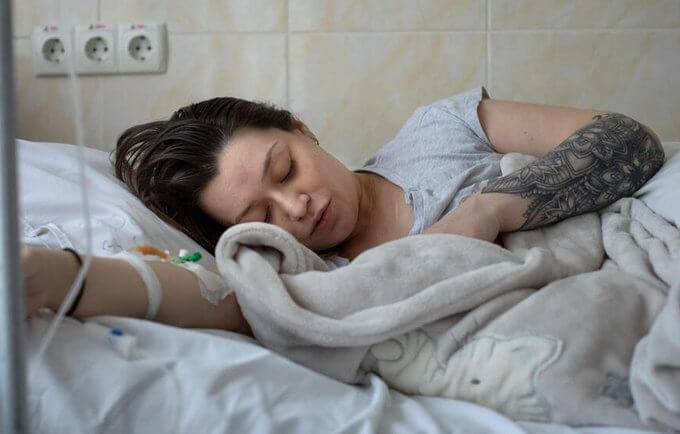
Your support has made a remarkable difference for Ukrainian women and girls over the past two years. As we enter the third year of conflict, we can’t forget about the women and girls who continue to need lifesaving sexual and reproductive health care.
Your contribution today serves as a crucial lifeline for women and girls in Ukraine. Please make a gift and ensure they have the support they need.